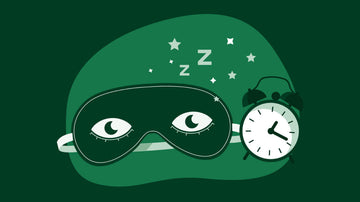You may be curious to know if it’s even possible to sleep with your eyes open. The short answer is, yes, it’s possible, but it’s not recommended given the long-term health effects. Though sometimes sleeping with your eyes open may allow you to relax your mind and body, doing so regularly can negatively impact your health.
Some people are compelled to sleep with their eyes open because of certain underlying medical conditions. They may be sleeping with their eyes partially or fully open because their eyelids don’t close properly, for instance. It’s beneficial to seek medical attention as soon as possible in these cases. Learn more about the side effects of sleeping with your eyes open and how to sleep with your eyes open.
Side effects of sleeping with eyes open
It’s normal and natural to sleep with your eyes closed because your eyelids block light, which stimulates your brain into wakefulness. Closing your eyes shuts off light sources to your retina, which is essential for good sleep. The body produces the sleep-inducing hormone melatonin, only when it perceives darkness around.
There’s also a reason each person has eyelids. They act as a protecting cover for your eyes, shielding them from dust, dirt, and irritants. Every time you blink, your eyes are coated with oils and mucus, keeping them nourished and hydrated. Shutting your eyelids for a prolonged period during sleep boosts eye health because it keeps your eyes moisturized and allows them to rest, along with your body. Sleeping with your eyes closed is good for your eyes and your overall sleep quality. When you don’t shut your eyes and sleep in this natural way, it affects both your sleep quality and eye health.
However, you may choose to sit and sleep with your eyes open to allow yourself to sneak in some rest time. You can do it once in a while to effectively utilize your downtime, but doing so regularly may lead to problems such as:
- Eye irritation, such as dryness or redness
- Burning sensation
- Blurry vision
- Sleep disruptions at bedtime
Steps to train yourself to sleep with eyes open
Relax yourself
Breathe slowly
Focus on something
Let your thoughts flow
Medical causes of sleeping with eyes open
What are the dangers of sleeping with your eyes open?
If you sleep with your eyes open then you may often wake to find that your eyes are dry, red, and irritated. It’s annoying and painful in the short-term, but there are also potential long-term problems that can occur if you chronically sleep with your eyes open.
Sleeping with your eyes open on a nightly basis can cause your eyes to become inflamed and can also lead to dry spots, ulcers, or even scarring on your cornea or the inside of your eyelids. Therefore, it’s ideal to get a good night’s sleep the natural way, with your eyelids closed shut.












